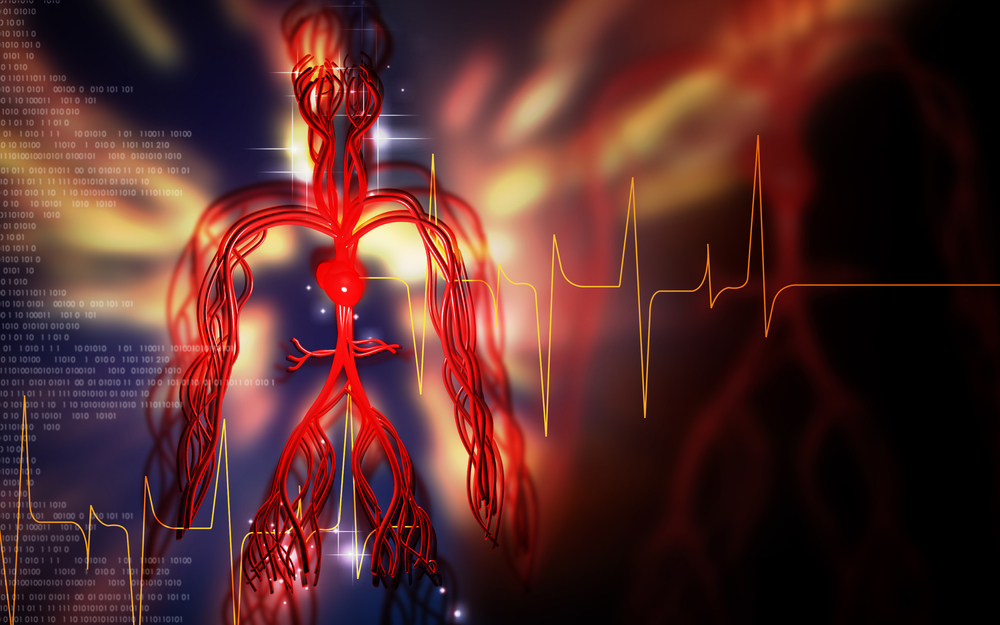Angiotensin II for the Treatment of Vasodilatory Shock

Angiotensin II for the Treatment of Vasodilatory Shock
EJRC ARTICLE REVIEW
Vasodilatory shock is a severe clinical condition characterised by acute reduction of vascular resistance leading to systemic hypoperfusion, multi-organ dysfunction and death. Vasodilatory shock requires prompt administration of vasopressors when intravenous fluid resuscitation fails to restore adequate organ perfusion. Currently, only two classes of vasopressors are available: catecholamines (and other sympathomimetic amines) and vasopressin. In a recent pilot study [1], addition of human angiotensin II to catecholamine and vasopressin therapy increased mean arterial pressure in patients with vasodilatory shock, allowing reductions in the dose of catecholamines.
The Angiotensin II for the Treatment of High-Output Shock (ATHOS-3) is a phase 3, randomised, double-blind, placebo-controlled trial designed to test the effectiveness of intravenous human Angiotensin II for the treatment of patients with catecholamine resistant vasodilatory shock [2]. The study was founded by the manufacturer of Angiotensin II and conducted under a special protocol assessment agreement with the U.S. Food and Drug Administration.
ATHOS-3 [2] was conducted from May 2015 through January 2017 in 75 Intensive Care Units across North America, Australasia, and Europe. A total of 321 patients with vasodilatory shock (80.7% caused by sepsis) catecholamine resistant (norepinephrine dose > 0.2 μg/Kg/min or the equivalent dose of another vasopressor administered for at least 6 hours but no longer than 48 hours) were randomly assigned to receive a 48-hours infusions of either angiotensin II (163 patients) or placebo (158 patients). Primary end point was defined as mean arterial pressure increase of at least 10 mm Hg or to at least 75 mm Hg, without an increase in the dose of background vasopressors, at 3 hour after the start of the intravenous per-protocol infusion. Primary endpoint was reached in 69.9% of the patients in the Angiotensin II group versus 23.4% of the patients in the placebo group (odds ratio, 7.95; 95% confidence interval [CI], 4.76 to 13.3; P<0.001). Patients who received angiotensin II had lower catecholamine dependency than patients who received Placebo. At 48 hours, SOFA score increased in both groups with a significantly greater cardiovascular SOFA score improvement in the Angiotensin II than Placebo group (−1.75 vs. −1.28, P=0.01). Serious adverse events were recorded in 60.7% of the patients in the Angiotensin II group and 67.1% of the patients in the Placebo group. Mortality rate at 28 days was 46% in the Angiotensin II group and 54% in the placebo group (hazard ratio, 0.78; 95% CI, 0.57 to 1.07; P = 0.12).
The ATHOS-3 [2] trial showed the potential benefits of more closely mimicking natural physiologic responses to shock with vasoactive substances regulating different and synergic pathways. Multimodal therapies may leverage synergy to allow lower doses with potentially fewer toxic effects. Larger trials with longer duration of follow-up are warranted to address clinically important side effects and outcome attributable to Angiotensin II, as compared with other vasopressors. Intravenous administration of Angiotensin II increased blood pressure and allowed catecholamine dose reductions in patients with vasodilatory shock who were receiving high dose of vasopressors.
Article review prepared and submitted by Salvatore Lucio Cutuli (EJRC member) and Gennaro de Pascale (NEXT committee member), Department of Intensive Care and Anesthesiology, Catholic University of the Sacred Heart, A. Gemelli University Hospital, Rome, Italy.
References
1. Chawla LS, Busse L, Brasha-Mitchell E, Davison D, Honiq J, Alotaibi Z, Seneff MG. (2014) Intravenous angiotensin II for the treatment of high-output shock (ATHOS trial): a pilot study. Crit Care 6;18(5):534.
2. Khanna A, English SW, Wang XS, Ham K, Tumlin J, Szerlip H, Busse LW, Altaweel L, Albertson TE, Mackey C, McCurdy MT, Boldt DW, Chock S, Young PJ, Krell K, Wunderink RG, Ostermann M, Murugan R, Gong MN, Panwar R, Hästbacka J, Favory R, Venkatesh B, Thompson BT, Bellomo R, Jensen J, Kroll S, Chawla LS, Tidmarsh GF, Deane AM; ATHOS-3 Investigators.(2017)Angiotensin II for the Treatment of Vasodilatory Shock. N Engl J Med. [Epub ahead of print]